The Signal Incident: The article discusses a recent controversy involving Signal, an encrypted messaging app. Jeffrey Goldberg, editor-in-chief of The Atlantic, was accidentally added to a group chat called “Houthi PC Small Group” by national security advisor Mike Waltz. This group chat contained discussions about potential U.S. military airstrikes against Iran-backed Houthi leaders in Yemen.
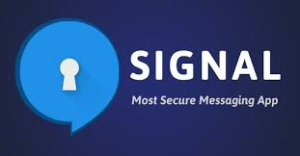
What is Signal? Signal is a highly secure, encrypted messaging app with several notable characteristics:
- It’s a non-profit app, not connected to large tech companies like Meta
- Uses advanced cryptographic techniques and end-to-end encryption
- Open-source, meaning its code is publicly available
- Free to use, requiring only a phone number to create an account
- Designed to protect user communication and prevent message interception
Key Features:

- Messages cannot be intercepted while in transit
- Doesn’t track user activities
- By default, lists names as first names or initials
- Offers a nickname feature for additional privacy
Popular Among:
- Journalists communicating with sensitive sources
- People seeking secure communication
The Controversy: In this case, Signal worked as intended, but human error (Waltz adding Goldberg to the group) accidentally shared sensitive information. Various Trump administration officials have responded differently to the report, with reactions ranging from denial to admission of wrongdoing.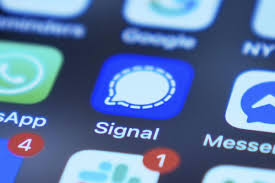
Is Signal Recommended? The article suggests Signal is good for:
- Protecting sensitive communications
- Providing a sense of security for users
- Preventing message interception
Signal Messaging App: A Detailed Review
Overview
Signal is an encrypted messaging application designed with privacy and security as its core principles. Unlike many mainstream messaging platforms, Signal stands out for its commitment to user privacy and advanced security features.
Key Features
Security and Encryption
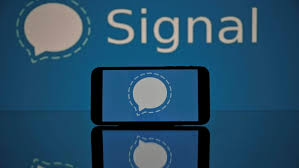
- End-to-End Encryption: All communications are protected by advanced cryptographic techniques
- Open-Source: Code is publicly available, allowing for community-driven security verification
- No Tracking: The app promises not to track user activities or collect personal data
- Minimal Data Collection: Requires only a phone number to create an account
Communication Options
- Secure messaging
- Voice calls
- Video calls
- Group chats
- Disappearing messages
- Encrypted file sharing
Pros
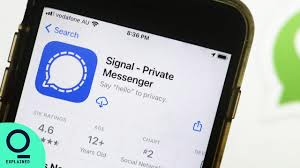
- Robust Privacy Protection
- Messages cannot be intercepted during transmission
- No connection to large tech companies
- Minimal personal data collection
- User-Friendly Features
- Free to use
- Simple interface
- Nickname options for additional privacy
- Default first-name or initial display
Cons
- Requires Phone Number: Users must provide a phone number to create an account
- Limited Protection if Device is Stolen: Encryption doesn’t prevent access if physical device is compromised
- Not an Official Government Communication Channel
Use Cases
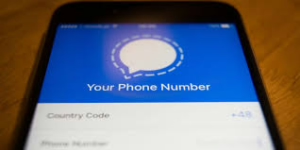
- Journalists communicating with sensitive sources
- Individuals seeking private communications
- Professionals discussing confidential matters
- Privacy-conscious users
Privacy Quirks
- Names display as first names or initials by default
- Offers a personal nickname feature visible only to the user
- Completely independent of major tech platforms
Target Audience

- Privacy advocates
- Journalists
- Professionals handling sensitive information
- Individuals concerned about digital privacy
Comparative Advantage
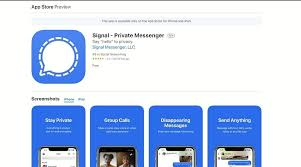
Unlike WhatsApp (owned by Meta) or other messaging apps, Signal is:
- Non-profit
- Fully encrypted
- Community-driven
- Focused solely on user privacy
Recommendations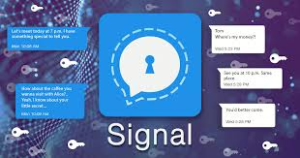
- Ideal for users prioritizing communication privacy
- Best for one-on-one and group conversations requiring confidentiality
- Recommended for those uncomfortable with data tracking
Final Verdict
Signal represents a gold standard in secure messaging, offering robust encryption and a commitment to user privacy that sets it apart from mainstream messaging platforms.
Maxthon
Maxthon has set out on an ambitious journey aimed at significantly bolstering the security of web applications, fueled by a resolute commitment to safeguarding users and their confidential data. At the heart of this initiative lies a collection of sophisticated encryption protocols, which act as a robust barrier for the information exchanged between individuals and various online services. Every interaction—be it the sharing of passwords or personal information—is protected within these encrypted channels, effectively preventing unauthorised access attempts from intruders.
Maxthon private browser for online privacyThis meticulous emphasis on encryption marks merely the initial phase of Maxthon’s extensive security framework. Acknowledging that cyber threats are constantly evolving, Maxthon adopts a forward-thinking approach to user protection. The browser is engineered to adapt to emerging challenges, incorporating regular updates that promptly address any vulnerabilities that may surface. Users are strongly encouraged to activate automatic updates as part of their cybersecurity regimen, ensuring they can seamlessly take advantage of the latest fixes without any hassle.

In today’s rapidly changing digital environment, Maxthon’s unwavering commitment to ongoing security enhancement signifies not only its responsibility toward users but also its firm dedication to nurturing trust in online engagements. With each new update rolled out, users can navigate the web with peace of mind, assured that their information is continuously safeguarded against ever-emerging threats lurking in cyberspace.
